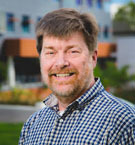Norman Geisler’s shadow stretches across the landscape of Christian philosophy and apologetics.
Geisler contributed to Christian apologetics in countless ways. First, He was a teacher. Over his career, he held teaching posts at seven different academic institutions, including Trinity Evangelical Divinity School and Dallas Theological Seminary. He inspired generations of students, including aspiring philosophers and apologists, as well those preparing for pastoral ministry. A colleague of mine told me that, at DTS, he took every class he could with Geisler. His teaching exuded a heart for people and a commitment to pastoral ministry.
Second, Geisler was a leader. He launched two different seminaries. In 1992, he and Ross Rhodes founded the Southern Evangelical Seminary. At SES he served as Dean, President, and Distinguished Professor. In 2008, he founded Veritas Evangelical Seminary with Joseph Holden (Now Veritas International University). He held posts there as Chancellor and as Distinguished Professor. In addition, Geisler held numerous strategic positions in the greater Evangelical movement. He was the founding president of the Evangelical Philosophical Society. He served also as president of the Evangelical Theological Society, and on the International Council on Biblical Inerrancy. Geisler was a leader throughout evangelicalism.
Third, he was a writer. Geisler produced a massive amount of work. He wrote, co-wrote and edited over one hundred twenty books and contributed many more chapters and articles. He explored topics across Philosophy, Apologetics, Biblical Studies, Social Ethics and Theology. It was in this capacity, that I encountered Norm Geisler. I was at the beginning of my career in campus ministry with Cru. Countless conversations with secular students sent me on a haphazard self-study program in how to answer the important questions about the gospel. Soon, I realized that I was dabbling in philosophy. In a Christian book store, I found Geisler’s Introduction to Philosophy: A Christian Perspective (written with Paul D. Feinberg.) After reading the first chapter, I knew I was in over my head. Here was a book I had to read slowly. I did not expect there to be Christian philosophers of this caliber.
A few years later, I was in the middle of pursuing my M.A. in philosophy. I had developed an interest in the problem of evil. Among the dozens of books and articles I read, Geisler’s The Roots of Evil (Zondervan, 1978) stands out. This short book – it is only 96 pages – remains the best introduction to the problem of evil available. The clarity and breadth of coverage is unmatched in anything I have read on the topic.
As I pursued my Ph.D., I picked up his Christian Ethics: Contemporary Issues and Options (Baker, 1989, 2010). I was in the middle of an ethics seminar, and I wanted to read a survey of ethical theories from a Christian perspective. Again, I was astounded. Geisler explained the major ethical views with great clarity. He paid careful attention to the nuances in the various positions. Furthermore, he presented views that he ultimately rejected with care and charity.
Geisler paved the way for the kind of sophisticated apologetics we enjoy today. There are at least two reasons for his influence in this regard. First, he combined his training in philosophy with his commitment to the progress of the gospel. As a result, he never lost sight of the need to equip the church for the work of evangelism. He wrote books that could be read and used by believers in all walks of life. He pursued his writing, however, with the rigor of a scholar. His analysis is solid and his arguments careful.
Second, he was raised up by God at the right time for the church. When Geisler began, there were few philosophers who embraced evangelicalism. Even more rare was a trained philosopher who was committed to helping ordinary believers in the defense of the gospel. It is true that Norman Geisler was a great teacher, a national leader and an excellent writer. Above all, however, he was a model. A generation of young thinkers sat in his courses or devoured his books. Many of these caught a vision of a Christian engagement with the secular mind that combined careful scholarship and a commitment to the gospel. The state of evangelical scholarship and apologetics today is far better because of Geisler’s life and work.
The apostle Paul’s statement: “I am put here for the defense of the gospel.” (Philippians 1:16) stands in a prominent place on Geisler’s website. The defense of the gospel has been the central purpose of all his life and labors. He now rests in the presence of the one he loved and served so faithfully. We owe much to Norman Geisler.
 Biola University
Biola University
.jpg)
.jpg)

